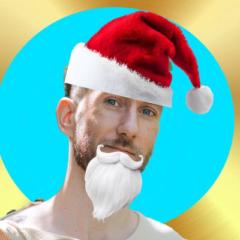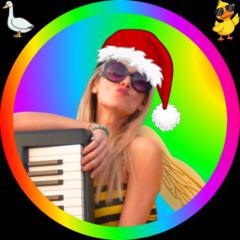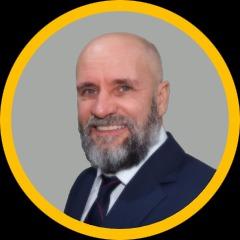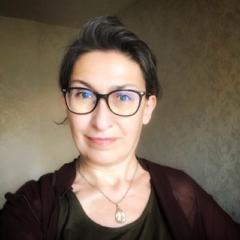Apr 11 (edited) • 🎙️ Podcasts
Dancing in the Digital Age: How Lauren Built a Thriving Dance Community on Skool
When most people think of dance, they envision studios with polished floors, mirrors, and the energy of bodies moving together in shared space. Lauren is challenging this traditional paradigm through her innovative work on Skool, the rapidly growing community platform championed by business leader Alex Hormozi. Through her "Dance Hub" community, she's creating something previously thought impossible—a vibrant online environment where dancers across styles, experience levels, and continents connect, learn, and move together without geographic limitations.
I recently sat down with Lauren to discuss the unique challenges of building an online dance community, her journey on the Skool platform, and what it takes to create a thriving digital space for dancers in today's increasingly online world.
Bringing a Physical Art to a Digital Platform
When asked about the inspiration behind creating a dance community online, Lauren is refreshingly candid. "I think the original inspiration was hearing that Hormozi was coming to the Skool platform. I was a follower of what he was doing since the Leads launch, and reading the books that he had," she explains. Already familiar with Skool through Andrew Kirby's group, she jumped into Skool games without a clear plan, simply drawn by the opportunity to build something online.
The challenge of bringing a physically-centered art form like dance to a digital platform is significant. "I'm still learning what's possible," Lauren admits. "We've been doing dance improvisation sessions where I had an audio recording so I wouldn't have to facilitate and could just follow along. We were moving and dancing freely."
She notes that while certain aspects of in-person dance can't be replicated – "the smell of the room and feeling the sweat of other people's bodies" – the online format opens up new possibilities: "There's many people in our group that don't live in the same place. The only time we would have the chance to dance together is through something like this."
Her community hosts various activities, from dance breaks where members "come together and dance for 15 minutes like a little dance party" to more traditional classes where people teach specific dance styles. This blend of casual connection and structured learning creates a unique space that wouldn't exist without the platform
.
Building a Diverse Dance Community
Lauren's approach to community building emphasizes inclusivity and diversity. "It was important for me that it's a very diverse space with a lot of styles and different experiences, like how long people have been dancing," she explains.
To achieve this, she initially reached out individually to dancers on Instagram: "I was looking up different dance organizations, whether it's the National Dance Education Organization or a Tap Academy, just random little studios in different parts of the country." She consciously sought dancers from outside the US as well, creating a truly global community.
This strategy proved effective – her first group grew to approximately 125 members, almost all invited through personal outreach. The transition to attracting members through Skool itself came later: "A lot of people now have come from Skool. Before we had the dance subgroup that very clearly looked like it was a place for dancers, less people came from Skool. Now that it's a little more open to anyone interested in dance and finding a dance community, a lot of people have come from Skool."
The Power of Connection in the Digital Age
What makes Skool different from other platforms, according to Lauren, is the genuine connection it facilitates. "There's something about Skool that feels almost very in-person already, even though it's online," she observes. "There's something about the way that people are interacting. Maybe it's the excitement that a lot of people are coming with, or an openness or willingness to jump on calls and join new communities."
This atmosphere has led to unexpected connections: "I've met people on Skool that it's fun to see popping up in other groups. I've also met people that actually live in my area, but I wouldn't have met them had they not joined this group. And then I realized, oh, we live in the same city and we've met up."
The platform's culture encourages experimentation and authenticity. "It seems like it opens up space to see the realness of people," Lauren notes. "Not every path is formed yet, and so you can see people just being really creative. As a creative person, that helps me get to know you when I can see how you try things in life."
The Entrepreneurial Journey: Challenges and Pivots
Like many on the platform, Lauren's path to building a successful community hasn't been without challenges. "I don't even want to go back and look at the posts that I made," she laughs, recalling early ambitious timeline goals. "By the end of the time period I'd given, and so many people commenting on it, I looked back and was like, 'Oh, I haven't made a dollar yet.'"
This experience taught her valuable lessons about realistic expectations: "The actual timeline of how long it takes to learn a new thing and then to clarify can sometimes be a lot longer than I expected when I came in."
A significant challenge for Lauren has been information overload: "I started learning from a lot of different people at once and they were all saying different things. I was one day trying to follow one person and the next trying to follow another." She's since narrowed her focus: "Now I really listen to what Sarah Hankins says. I listen to the Synthesizer way. Lessening the noise is hard sometimes because it all sounds really, really good."
Another challenge has been staying true to her vision while navigating monetization: "I'm a little stubborn. I want this dance space to be about dance. I'm not necessarily trying to teach people how to make money online. I'm not really trying to do a group that is dance fitness either where people are coming in so that they can lose weight and do a challenge. It's really about just connecting with other dancers, movement for movement's sake, experiencing art."
Finding Her Path Forward
For Lauren, the journey on Skool represents both her passion and her professional path: "Since I'm not teaching dance anymore, I am at a point where I'm like, 'I have to make this work' and now I'm at a point where 'this is going to work, you just need to keep working at it.' Skool is like my job. It's not a job that I'm being paid a full-time living wage from, but this is what I do."
Her vision for the future includes expanding from the digital to the physical: "I do want more dancers and more people in movement to experience what we can do together online. I think it's fun, and I think it'll also branch out into real-life events, like retreats and things."
Lauren has also explored innovative ways to engage her community, including developing a dance app with help from others in the Skool ecosystem: "It's a movement prompter where you can choose different categories of movement and you just move for five minutes with creative prompts. If you're trying to get into a creative space and you maybe don't have the motivation or your own prompts, it's a great way to try something out."
Advice for New Community Builders
For those just starting on their Skool journey, Lauren offers practical advice: "Come in and plan to stay for a while. A lot of people come in, try it out, and if it doesn't work the first time, maybe quit or leave. But think of Skool as a long-term commitment."
She emphasizes the importance of finding your people: "Search for the people, find your people. Maybe even just be open to experimentation. I came in with something different in mind, and now I'm curious how this is gonna branch into real life."
Lauren's approach highlights the value of authentic connection in community building: "Just plan to be here for a while and be open-minded to experimentation. You might learn something new from somebody. You'll definitely learn something from somebody if you're open-minded."
Final Thoughts
Throughout our conversation, Lauren returns to themes of authenticity, creativity, and patient persistence in building her dance community on Skool. In a digital landscape often focused on quick wins and monetization strategies, her approach offers a refreshing alternative centered on genuine connection and artistic expression.
As Skool continues to evolve as a leading platform for online community-building, Lauren's insights serve as a valuable roadmap for those looking to create digital spaces where authentic connection translates into meaningful experiences across geographic boundaries—proving that even the most physical of art forms can find new expression in the digital age.
9
1 comment
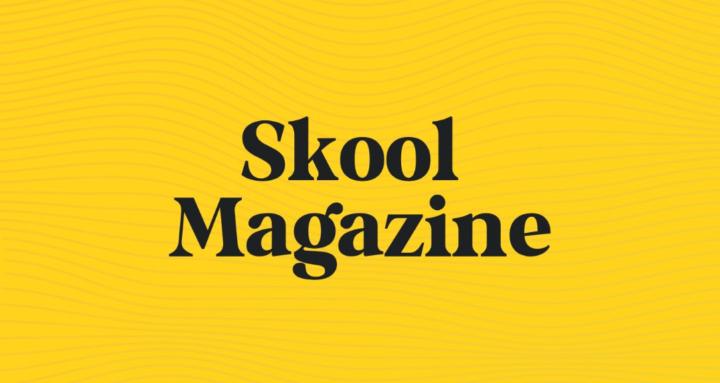
skool.com/magazine
Articles, videos, reviews, & podcasts from some of the coolest communities on Skool 😎
Powered by
